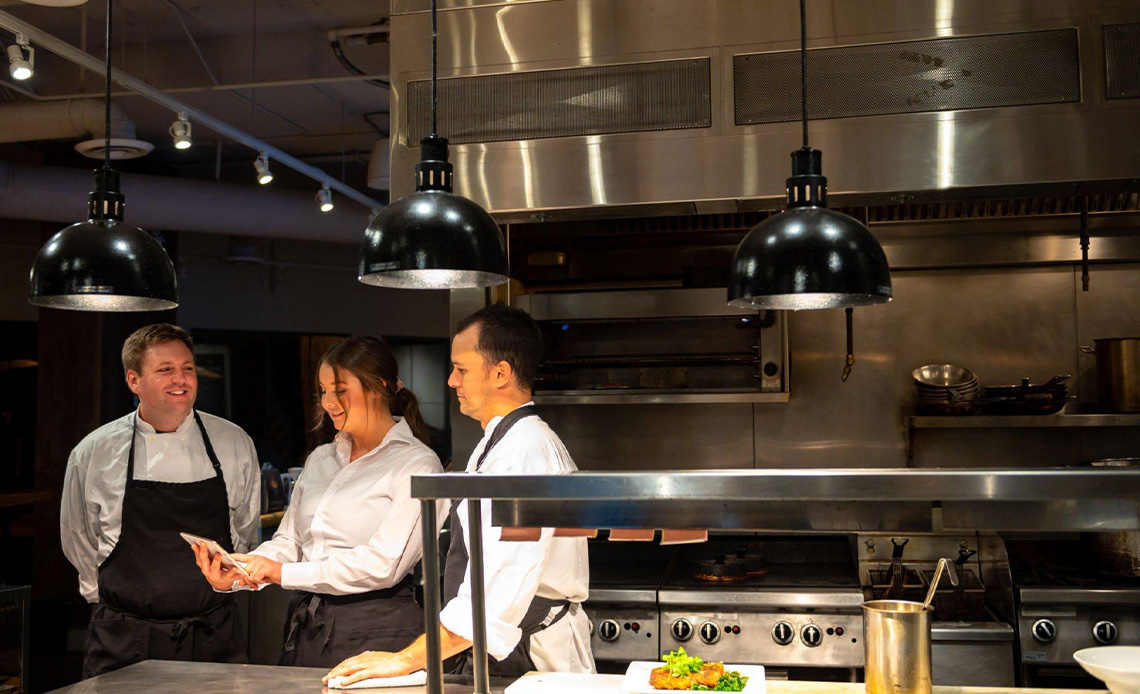In the highly competitive restaurant industry, providing exceptional guest experiences is essential for success. Customer Relationship Management (CRM) systems have emerged as powerful tools for restaurants to personalize interactions, streamline operations, and build lasting relationships with guests. By harnessing the capabilities of CRM, restaurants can gather guest data, tailor services, and drive customer loyalty. This article explores the applications and benefits of CRM in the restaurant industry, focusing on guest engagement, personalized marketing, operational efficiency, and data-driven decision-making.
Guest Engagement and Relationship Building:
CRM enables restaurants to engage and build strong relationships with guests by capturing and leveraging guest data. By collecting information such as dining preferences, dietary restrictions, and contact details, CRM systems create comprehensive guest profiles. This data empowers restaurants to deliver personalized dining experiences, tailor menus or recommendations to guest preferences, and provide exceptional service. CRM also facilitates targeted communication, allowing restaurants to engage with guests before, during, and after their visit, fostering a sense of connection and loyalty.
Personalized Marketing and Loyalty Programs:
CRM systems allow restaurants to implement targeted marketing strategies and loyalty programs to drive customer engagement and repeat business. By analyzing guest data, CRM helps identify customer segments, preferences, and behaviors. Restaurants can leverage this information to create personalized marketing campaigns, send targeted promotions, and offer exclusive rewards to loyal customers. By delivering relevant and timely messages, CRM enhances guest engagement, encourages repeat visits, and increases customer loyalty.
Operational Efficiency and Service Optimization:
CRM systems streamline restaurant operations and optimize service delivery. Integrated with reservation systems and point-of-sale (POS) platforms, CRM provides a centralized hub for guest information, reservation history, and order details. This allows staff to access relevant guest data, track preferences, and provide personalized service. CRM also facilitates efficient table management, guest
seating, and order processing, resulting in improved operational efficiency and enhanced guest satisfaction.
Data-Driven Decision-Making and Menu Optimization:
CRM analytics offer valuable insights into guest preferences, dining patterns, and menu performance. By analyzing data, restaurants can identify popular dishes, seasonal trends, and opportunities for menu optimization. CRM enables data-driven decision-making, helping restaurants make informed choices regarding menu offerings, pricing, and promotions. This ensures that menus resonate with guest preferences, maximizes revenue potential, and enhances the overall dining experience.
Guest Feedback and Reputation Management:
CRM systems enable restaurants to actively manage guest feedback and online reputation. By capturing guest reviews, comments, and ratings, CRM provides a centralized platform for monitoring and responding to feedback. Restaurants can promptly address guest concerns, resolve issues, and take proactive steps to improve guest satisfaction. CRM also facilitates online reputation management by monitoring review platforms, social media channels, and providing a platform for guest feedback, allowing restaurants to maintain a positive brand image and strengthen their reputation.
Key Considerations for Successful CRM Implementation in Restaurants:
a. Integration with Existing Systems:
Seamless integration of CRM with reservation systems, POS platforms, and other operational systems is crucial for data accuracy and efficient processes. Integration ensures real-time data synchronization and a unified guest view, enhancing the overall guest experience.
b. Staff Training and Adoption:
Proper training and support for staff members are vital for successful CRM implementation. Training should focus on data entry protocols, guest interaction best practices, and CRM functionalities to ensure staff members can effectively utilize the system and provide exceptional service.
c. Privacy and Security:
Restaurants must prioritize data privacy and security when implementing CRM. Compliance with data protection regulations and robust security measures help safeguard guest information, ensuring trust and confidentiality.
d. Continuous Evaluation and Improvement:
Regular evaluation of CRM performance, gathering guest feedback, and making necessary adjustments are essential for ongoing success. Restaurants should continuously refine their CRM strategies, adapt to guest preferences, and improve the overall guest experience.
Conclusion:
CRM systems have revolutionized the restaurant industry by enabling personalized guest experiences, optimizing operations, and driving customer loyalty. By leveraging CRM, restaurants can create meaningful connections with guests, deliver tailored services, and make data-driven decisions. Embracing CRM technology is crucial for restaurants aiming to provide exceptional guest experiences, foster loyalty, and stay ahead in a highly competitive industry.




